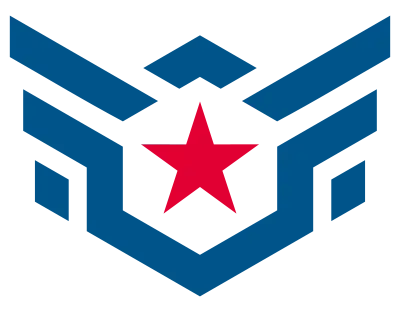PRIDE Industries’ Adrienne Lawson, Senior Director of Diversity, Equity, and Inclusion, participated in the Sacramento Business Journal panel discussion, called “Stability and Stamina in DEI: What it takes to keep a DEI program on track and thriving.” Earlier in the day Dr. Lawson was recognized as one of the SJB’s DEI Champions.
Diversity and Inclusion
Tony Lopez, Vice President of Manufacturing and Logistics Services for PRIDE Industries, talks with Josh Santo of Conquering Chaos. They discuss the value of employing persons with disabilities and creating an inclusive work environment for companies and employees to thrive.
Josh Santo (JS): Today, approximately 30 million working-age people in the U.S. have a disability. 75% of them are unemployed.
Our next guest, Tony Lopez, is committed to creating jobs for people with disabilities and is creating change in the contract manufacturing field. As the Vice President of Manufacturing and Logistics Services for PRIDE Industries, Tony oversees multiple lines of business, including electronics and medical devices, manufacturing, supply chain logistics, contract packaging, and fulfillment.
Tony, tell us about PRIDE Industries, the communities that you serve, and your manufacturing solutions.
Tony Lopez (TL): PRIDE Industries was founded in the basement of a church in 1966 by a group of parents who wanted to create jobs for their adult children with disabilities. We originally operated like a true nonprofit but found this wasn’t sustainable. So, PRIDE Industries became a social enterprise, which means we employ the same strategies as commercial businesses. The difference is that any profits or surplus go back into reinvesting into our mission to create employment for people with disabilities.
We operate several different lines of business, including packaging and fulfillment, electronics manufacturing, and supply chain and logistics for companies like HP, Inc. We also do contract packaging and fulfillment, including for a large hospitality food provider that we’re projecting to fulfill 5,000 work orders.
Workplace Inclusion is Good for Business, Including Manufacturing
JS: Besides solving workforce and recruitment problems, how else can hiring people with disabilities help organizations?
TL: If you look at companies with high environmental, social, and governance (ESG) ratings—which take workplace inclusion into consideration—they have healthier cultures, lower turnover and absenteeism, and are more profitable. And consumers take positive notice when organizations become socially conscious.
In the manufacturing field, employees with disabilities have high productivity rates and lower levels of mistakes. Contrary to popular belief, people with disabilities take safety seriously—our safety incidents are 30% lower than the industry average. Overall, the key to success as an employer is to offer opportunity and support to all your employees—with and without disabilities.
Understanding Disability and Creating an Inclusive Work Environment
JS: Can you help us understand what constitutes a disability?
TL: Disability is a broad concept that encompasses invisible and visible disabilities, intellectual disabilities, physical disabilities, and mental health and learning disorders.
It’s important to realize that people aren’t just born with disabilities; some individuals develop them over the course of their lifetime. It might be harder for them to complete certain tasks, but focusing on their value is important. People with disabilities are capable, and often they just need the opportunity.
JS: What common misconceptions do you encounter about hiring people with disabilities?
TL: One is that people with disabilities can only do simple job tasks. However, we have seen that by adapting training and creating a supportive environment, you can allow an employee to thrive and learn new skills.
JS: What kind of culture is needed to recruit and retain workers with disabilities?
TL: Diversity and inclusion have to be part of the organization’s goals. To create a truly inclusive work environment, companies need to employ people with disabilities for all career levels—not just entry-level jobs. They can achieve this goal by assessing their workplaces and offering inclusivity training.
JS: What kind of training and job coaching helps people with disabilities succeed?
TL: Onboarding is important. We start new employees by introducing our organization and culture, reviewing workforce inclusion support and accommodations, and explaining our learning and development opportunities. Training and support, including being provided with a job coach, is customized to each person’s skills and goals.
We can help your business grow
We offer cost-effective manufacturing and logistics services in a wide variety of industries.
“In manufacturing, employees with disabilities have high productivity rates and lower levels of mistakes.”
—Tony Lopez, Vice President of Manufacturing and Logistics for PRIDE Industries
